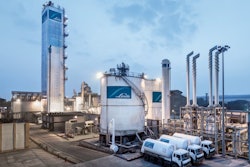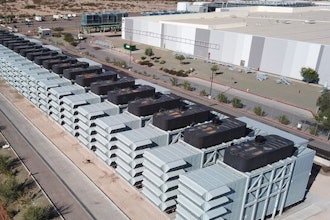
Demolition crews discovered a stinging surprise while working to tear down an Ottawa County plant formerly owned by a tire manufacturing company.
Workers sifting through parts of the former B.F. Goodrich plant last week stumbled upon a hive containing as many as 50,000 Italian honeybees, Miami's emergency management director Glenda Longan said (https://bit.ly/1p61tCH ). Several people were stung before a beekeeper had arrived at the site.
"The plant's been empty for so long that you run into different circumstances," said Longan, who is overseeing the demolition for Miami. "You get in there and it's like 'Whoops. Here's an issue. Whoops. Here's an issue.'"
One of those issues includes a highly flammable chemical called benzene that Goodrich used in its tire-manufacturing operations. The substance leaked into an underground storage tank decades ago.
In 1998, a settlement for cleanup was reached between Oklahoma, Miami and tire manufacturer Michelin, which had inherited Goodrich's liabilities through a series of corporate mergers.
Miami's city engineer told council members earlier this year that the Oklahoma Department of Environmental Quality plans to install 14 injection wells in 2015. State officials will monitor the wells for three years.
"There are unknown hazards that may be in the building because it was an industrial facility," said Rita Kottke, a remediation program manager with the state's environmental quality department. "That's our main involvement. We are working with Miami to ensure that it all goes well."
Goodrich built the plant in 1945 and continued operating it until the mid-1980s. It sold the property to an organization called Save Our Children's Environment of Tulsa in the mid-1990s. The Tulsa group started to tear down the main plant building, but contract disputes stalled the work.
George Blakeney with Alabama-based company Real Estate Remediation now owns the property. The plant's razing began in June and is expected to finish within a year. About 75 percent of the plant is expected to be destroyed.
"Most people are sad to see it go," Longan said. "But they also are glad to see it go. They think it is necessary."
___
Information from: Tulsa World, http://www.tulsaworld.com






















